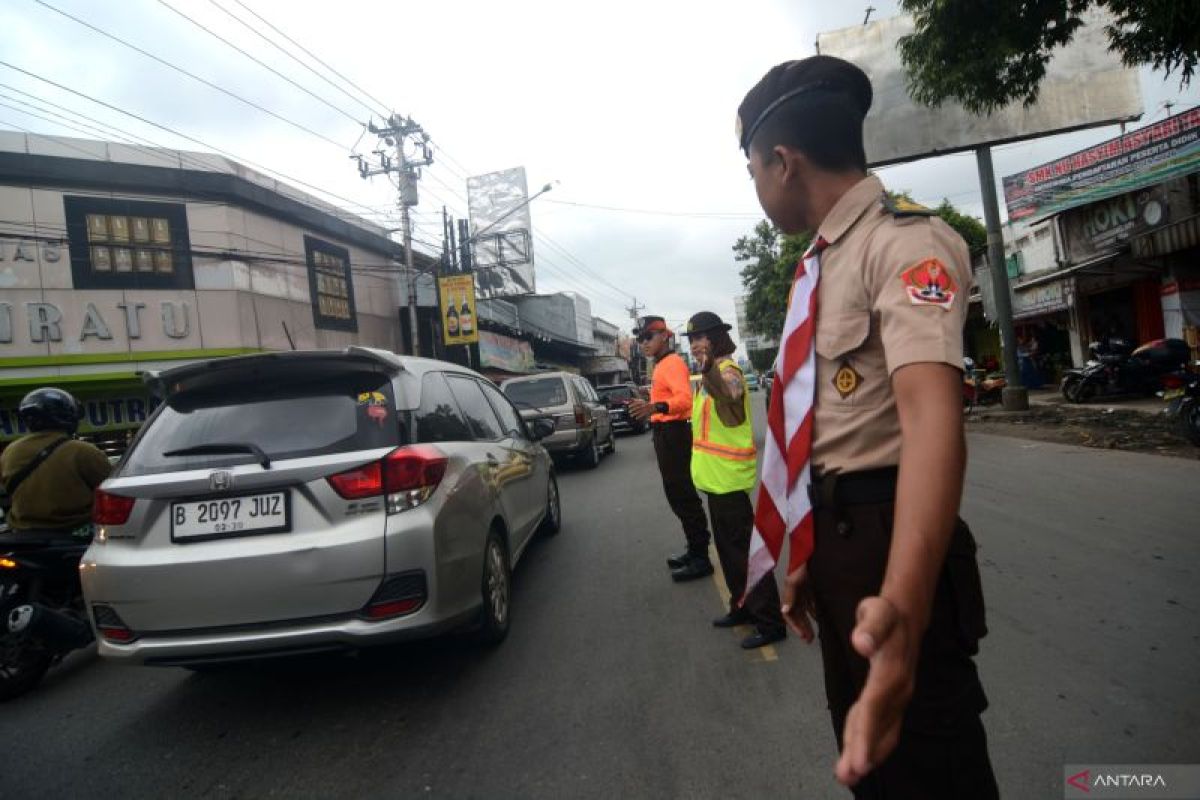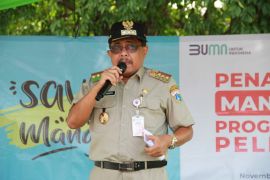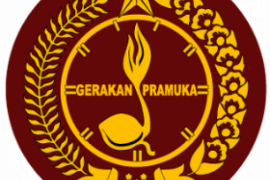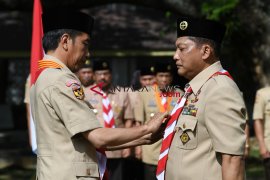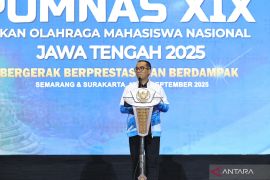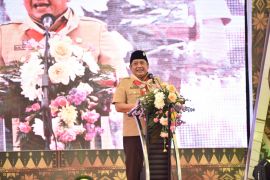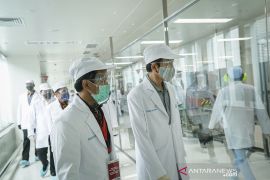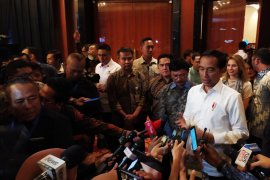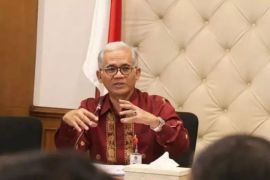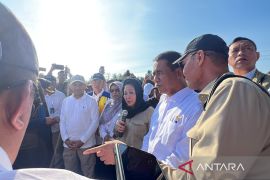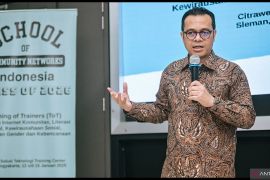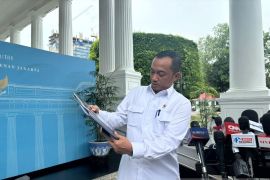This year, on August 14, 2025, Pramuka will celebrate its 64th anniversary. The Pramuka movement holds countless memories and has faced numerous challenges.
Advances in information technology and the shrinking of green open spaces in urban areas have also influenced the current development of the Pramuka movement.
Globalization and liberalization, accompanied by the influx of foreign cultures, have increasingly weakened the nation's moral foundation, distancing it from the values upheld by the Pramuka movement.
Various crimes committed by minors in Indonesia, such as theft, drug abuse, assault, bullying, and more serious crimes, such as assault resulting in death, are becoming more frequent and demand serious attention.
This trend reflects the erosion of social solidarity and tolerance for ethnic, religious, and cultural diversity in Indonesia.
Such concerns echo the views of Mochtar Lubis in his book Manusia Indonesia (1977), in which he identified six major traits: hypocrisy, reluctance and unwillingness to take responsibility for actions, feudalism, superstition, artistic talent, and weak character.
National character is a vital asset for a nation's development. The success of national development truly rests on a balance between tangible and intangible development.
Tangible development refers to physical progress, such as infrastructure and the provision of capital goods.
Meanwhile, intangible development refers to building citizens' character through formal and informal educational perspectives.
After President Sukarno's era, Indonesia appeared to prioritize physical development over national character building.
As a result, physical development itself did not advance optimally, partly because character building was neglected.
As a result, selfishness, corruption, collusion, and nepotism became rampant across all levels of society, thereby contributing to the rise of corruption, with the recent anecdote of the Corruption League referring to a wave of corruption cases in various agencies and State-Owned Enterprises (SOEs), likening it to a competition involving up to thousands of trillions of rupiah in state losses.
Here lies the crucial role of Pramuka in shaping Indonesia's national character. In fact, the roots of Pramuka go back long before its official founding.
In 1912, a group of scouts was trained in Batavia (Jakarta), which later developed into a branch of the Nederlandsche Padvinders Organisatie (NPO).
In 1914, this branch officially became a separate organization called the Nederlands-Indische Padvinders Vereeniging (NIPV), or the Dutch East Indies Scout Association. At that time, most members of NIPV were of Dutch descent.
In 1916, Mangkunegara VII founded the Javaansche Padvinders Organisatie, the first scouting organization supported by indigenous people. This was later followed by other scouting organizations based on religion, ethnicity, and social groups.
Some of these organizations include Padvinder Muhammadiyah (Hizbul Wathan), Nationale Padvinderij, Syarikat Islam Afdeling Pandu, Indonesian National Scouts, Padvinders Organisatie Pasundan, Pandu Sultanan, El-Hilaal, Pandu Ansor, Al Wathoni, Tri Darma (Christian), Indonesian Catholic Scouts, and Indonesian Christian Scouts.
The growth of scouting in the Dutch East Indies also drew the attention of the Father of World Scouting, Lord Baden-Powell, who visited scouting organizations in Batavia, Semarang, and Surabaya with his wife in early December 1934.
After independence, to unify the Scout movement, President Sukarno, along with Sri Sultan Hamengku Buwono IX, initiated efforts to unite the various scouting organizations.
Related news: Exploring Pramuka Island, a tourism jewel in Jakarta's north
President Sukarno brought together scout leaders from across Indonesia, merging them into a single body under the name Pramuka or Praja Muda Karana, meaning "Young Spirit Who Loves to Work."
On August 14, 1961, the Pramuka Movement was officially introduced to the public in a ceremony in the courtyard of the State Palace, with the handover of the Scout Movement Banner from President Soekarno to Sri Sultan Hamengku Buwono IX, who also became the first Chairman of the National Pramuka (Scout) Movement Headquarters. This date was later designated as Pramuka Day.
What is now needed is a shared awareness of how to encourage a revitalization of the current role of Pramuka.
Although Pramuka activities remain active in various elementary and secondary schools, participation levels in our country remain far from ideal.
As the world's largest archipelagic nation, Indonesia is not only blessed with a wealth of culture and natural resources but is also highly prone to disasters.
Disasters in various regions, such as floods, landslides, tornadoes, forest fires, earthquakes, and tsunamis, pose a threat that cannot be ignored.
Disasters result in both material and non-material losses, including the loss of life, serious and minor injuries, loss of shelter, loss of livelihoods, damage to infrastructure, and even social unrest.
The role of Pramuka needs revitalization. Its activities should go beyond outdoor recreation or simply filling free time, and instead nurture an appreciation for diversity from multiple perspectives.
Pramuka's involvement in disaster and social conflict preparedness is crucial, including protecting vulnerable groups and strengthening community preparedness.
Pramuka activities can be directed at encouraging communities to take steps to preserve the environment, especially amid the rise in natural disasters occurring in Indonesia.
Pramuka can help foster a culture of disaster resilience in communities. Pramuka can also participate in efforts to prevent social conflicts.
Through these roles, Scout members will be able to actively participate directly in society and become agents of positive change—more innovative, relevant, and beneficial to the nation, state, and Indonesian society.
This mission aligns with the spirit of character, nationalism, and life skills of the Pramuka Movement.
Cross-stakeholder collaboration is needed to strengthen the role of Scouts in Indonesia's human development.
All parties, especially the central and regional governments, need to be more serious about realizing the role of Pramuka as national leaders.
*) Andre Notohamijoyo is Chairperson of the Alumni Association of the School of Environmental Sciences, University of Indonesia (ILUNI SIL UI)
Related news: Scouts should continue to be innovative, President says
Copyright © ANTARA 2025
